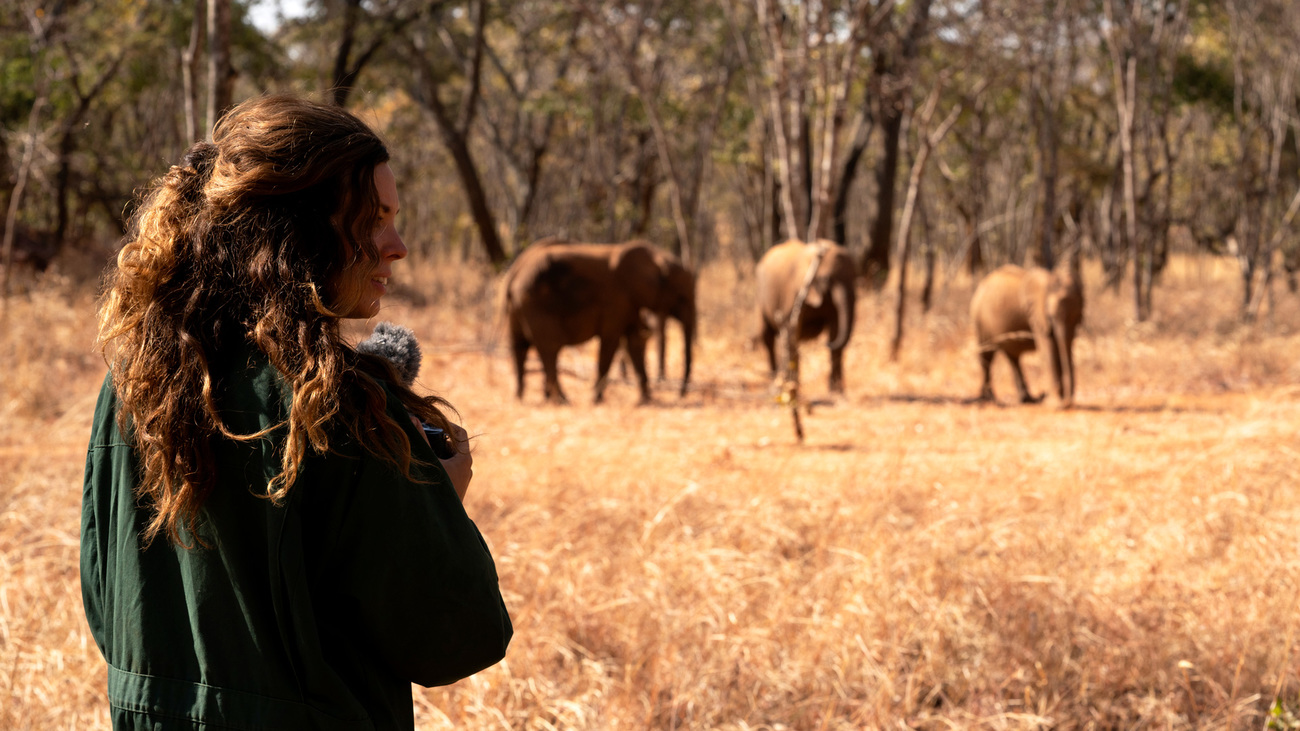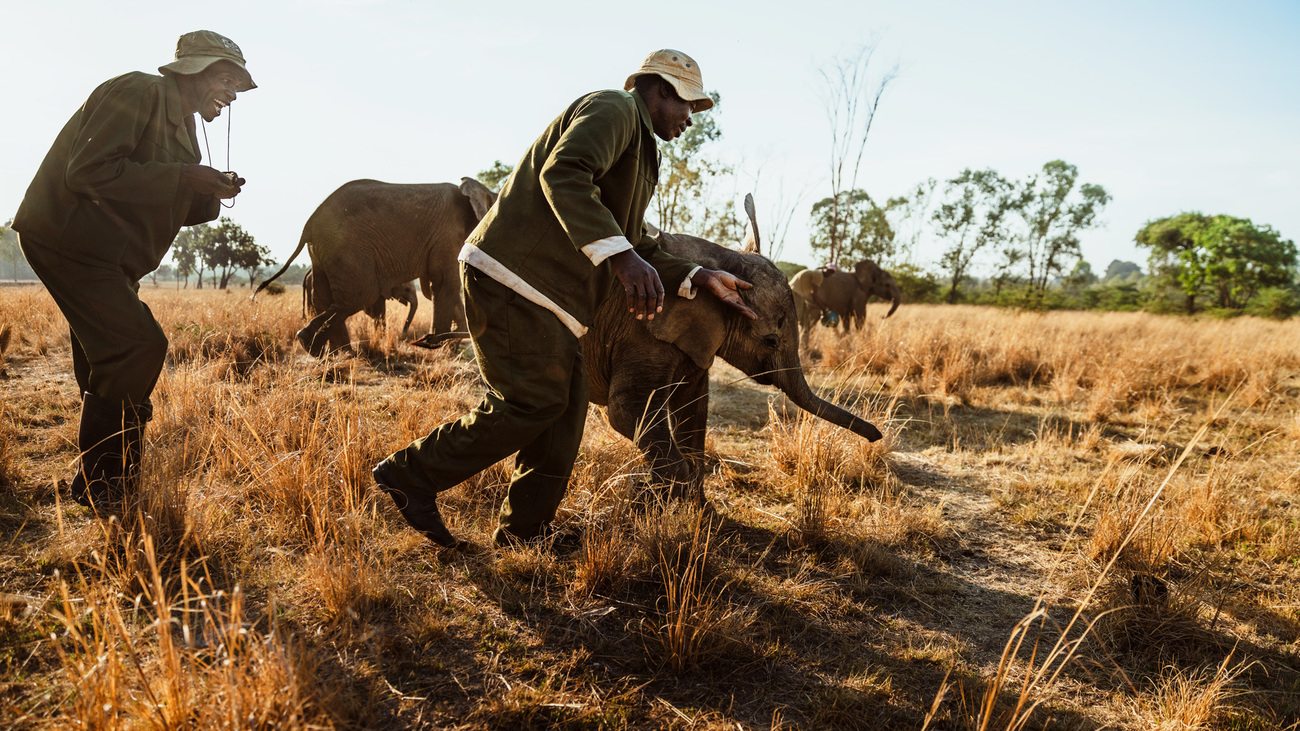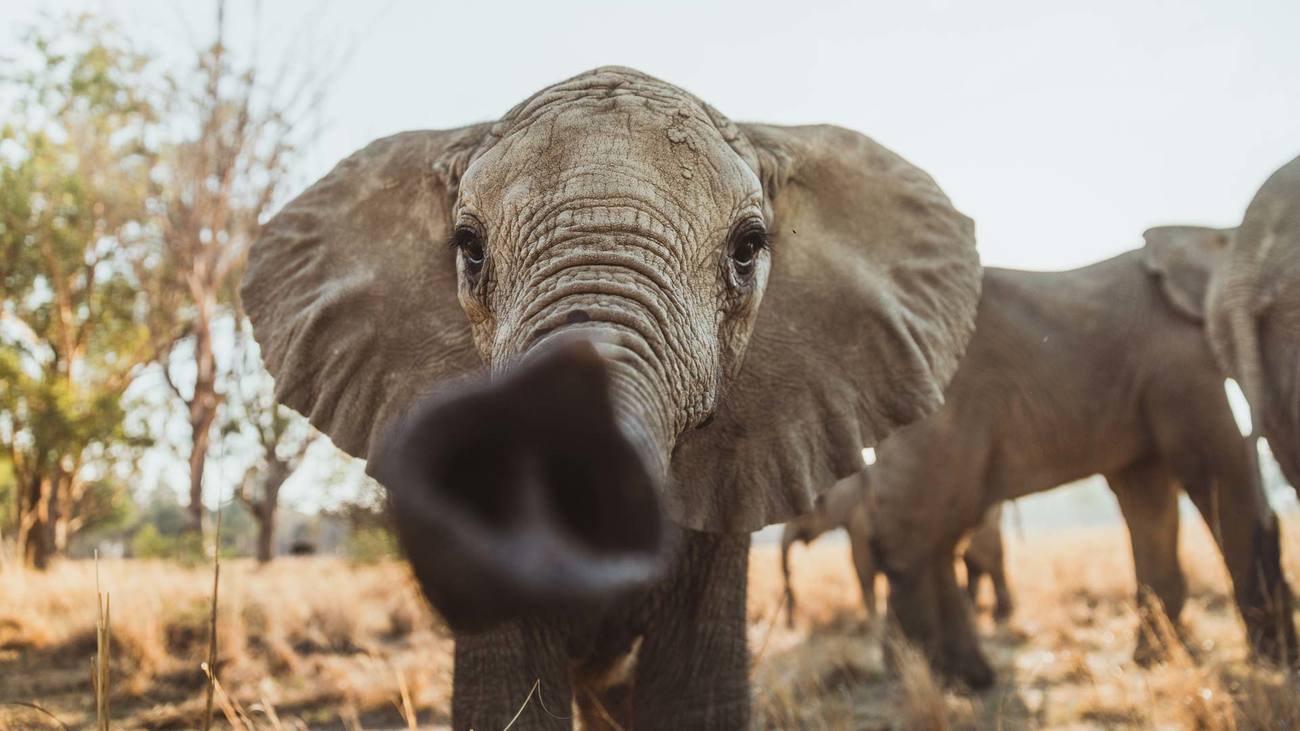Gesa Neitzel
How can I help elephants?
How can I help elephants?
It’s one of the questions I get asked the most: What can I do to help elephants in Africa? To answer it, I went to see for myself what is being done by experts on the ground, so I visited a nursery in Lusaka, Zambia, that takes in baby elephants who’ve been orphaned as a result of poaching.
Elephants are incredible, wonderful animals, and we are drawn to them like no other animals in the savannah. Scientifically, they are considered keystone species in the ecosystems in which they live, and they help out other animals through their role as ecosystem engineers.

By protecting elephants and their habitats, we can also protect the many other species that live alongside them. But why do elephants even need our help? Let’s take a look at the facts.
Why do elephants need our help?
In just the last century, over 90% of Africa’s elephants have been lost, primarily due to poaching. The ivory of their huge tusks is highly prized around the world, making them prime targets. Particularly in China, ivory carvings are considered status symbols. Ivory is shipped illegally from Africa across the Indian Ocean to the ports beyond.
Estimates suggest that poachers kill more than 10,000 elephants every year. According to National Geographic, Chinese buyers will pay more than $10,000 USD for a pair of ivory chopsticks, while carved tusks can fetch hundreds of thousands of dollars on the black market. This exploitation of wildlife is a lucrative business.
Quite apart from everything else, protecting elephants is a moral issue—if we lose elephants, we lose a vital part of our common global soul. In fact, the same goes for any species we allow to disappear.
And as we continue to face the increasing impacts of climate change, preserving our planet’s biodiversity—especially species like elephants that help us sequester 9,500 metric tonnes of carbon from the atmosphere every year, equivalent to the emissions of more than 2,000 cars—is crucial to protecting ourselves and our planet.
Supporting an elephant nursery
I’ve long wanted to do more to help elephants. In order to provide such help, however, it’s important to first understand how you can most meaningfully contribute.
If you expect to visit an elephant nursery and be able to stroke, bottle-feed, or otherwise engage with the young calves, you’ll be in for a disappointment there. Contact between people and elephants is strictly controlled, limited to just a few keepers who gain acceptance from the elephants as family members. The nursery’s approach is very much about giving these youngsters the best possible chance of reintegrating into a wild herd. For me, this approach is absolutely crucial and underlines the seriousness of the project.
The Lusaka Elephant Nursery was established by Game Rangers International (GRI), supported by IFAW via donations. These donations not only allow the organisation to look after the animals in their care, feed them, and eventually return them to the wild, but they also enable it to support and empower local communities so that they benefit from the presence of elephants and learn to coexist with them safely.
Here are the three areas of work your donations will support:
- Habitat and ecosystem protection (via training and employment of rangers, who help protect elephants and patrol park boundaries)
- Community outreach work (such as measures to aid the coexistence of people and animals, educational work with children, and public information campaigns)
- Wildlife rescue (the work of the nursery itself, i.e. rescuing and nursing orphaned baby elephants)
How orphaned baby elephants are rehabilitated

When the caretakers at the nursery hear that an orphaned elephant calf has been found, they initiate a three-stage process.
Stage 1: Rescue
As soon as the rangers receive an ‘orphan alert’, they prepare the requisite medicines and food for the orphaned elephant. They then make plans for the animal’s rescue, capture, and transportation. Sometimes, depending on where it’s found, a plane is required. Orphaned elephant calves are often very weak, undernourished, and dehydrated, and therefore need fast and effective human intervention.
Stage 2: Nursing
On arrival at the nursery, the calves are initially very confused. They miss the warmth and protection of their mother and their herd. Caretakers cover them in warm blankets and monitor them 24 hours a day. Each calf is given a milk formula that is specific to its age and size, adjusted over the course of its stay.
Keepers act as substitute mothers for the calves, accompanying them on daily bush rambles, providing a close bond, and conveying a sense of security. In addition, they are responsible for feeding them milk three times a day. Calves quickly memorise these feeding times, and if a regular feed is delayed by even just five minutes, they can get quite agitated.
Stage 3: Return to the wild
All calves at the Lusaka Elephant Nursery are eventually returned to the wild, specifically to Zambia’s Kafue National Park. Initially, they are accompanied by their keepers, but their contact with humans is then gradually reduced until the animals can live on their own. It’s a strategy that works, as seen with one former orphan who gave birth to her first calf in 2019. That’s the ultimate sign of a successful rehabilitation!
How can you help elephants?

If you’d like to get involved with helping elephants, here are a few suggestions for what you can do.
1. Volunteer at a rehabilitation centre. There are a few different ways you can help out on the ground at a centre like the Lusaka Elephant Nursery or other sanctuaries for rescued elephants. For example, they might need help with social media, research, or community outreach.
2. Visit and support an elephant sanctuary or national park. Wildlife tourism is crucial to the funding of ranger bases, rehabilitation centres, and conservation efforts. If you’re visiting Africa, check out opportunities for wildlife-friendly tourism, which is often assisted by rangers themselves. Avoid supporting organisations that exploit or abuse elephants for entertainment.
3. Consider supporting the Lusaka Elephant Nursery by making a one-off or monthly donation. Regular donations help the organisation plan for the longer term because they know in advance roughly what funds are available to them.
4. Make smart shopping choices. The tropical habitat of the Asian elephant is being destroyed by palm oil plantations. Palm oil appears in many products, including food items like chocolate, household items like toothpaste, and many beauty products. Research the production of these products to see if they contain palm oil before buying them, or you can see if the company has a sustainability pledge to use wildlife-friendly palm oil.
Another important consumer choice you can make is avoiding ivory products. There are still places in the US where buying ivory is legal. Despite bans in many countries on importing ivory, there are still loopholes for ivory to enter the market. Ivory is taken illegally from elephants, and they are most often killed in the process.
Additionally, look for coffee that is fair-trade and shade-grown, and seek out wood products that have been certified by the Forest Stewardship Council.
5. Spread the word on social media. By sharing IFAW’s posts on your own accounts, you’re educating your own family, friends, and followers on the plight of elephants and helping to stretch our organisation’s reach. The more people care about elephants, the better their chances are for surviving into the future.
You can learn more about how IFAW is working to support elephants in Africa through our Room to Roam initiative. You can also check out our Asian Elephant Protection project.
Related content
Blog
rescuing an orphaned elephant in Zimbabwe: a success story of animals and people working together to better our planet
Read moreBlog
Leonard Joel hosts online art auction to benefit ifaw
Read moreBlog
decisions made at CITES conference in the coming days could have impact on future survival of threatened species
Read moreEvery problem has a solution, every solution needs support.
The problems we face are urgent, complicated, and resistant to change. Real solutions demand creativity, hard work and involvement from people like you.